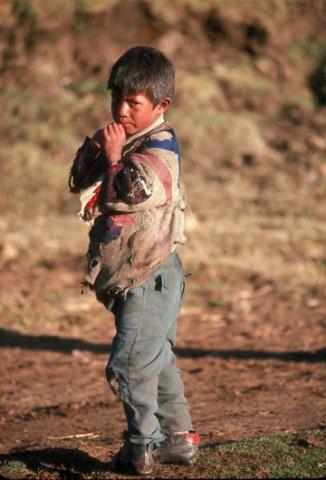
Sr. Susan Nchubiri, M.M., reflects on lamentation and hope in a challenging world.
In recent years there has been what I call an accelerated displacement and untold suffering of people around the world due to violence, human trafficking, the impact of climate change and environmental degradation, unequal distribution of resources, the gross misconduct of some of the Church leadership, among others. We have witnessed children being separated from their parents and people being caged like they were rabid animals. People have been drowning in the Mediterranean Sea as they escape hunger, violence and armed conflict in their homelands to find safety and food in Europe. Why on earth would anyone be so cruel to another human being? Why would someone dehumanize another human being?
These realities named above might dampen our hearts and minds to a state of cynicism; an attitude that humans are inherently evil and there is nothing to be done; an attitude that the power of darkness covers the earth and we are impotent in its face. It may lead to total despair.
Some days, I have shed tears and, like the prophets Habakkuk, Jeremiah, Job, the Psalmist, and Zechariah, I have questioned God and lamented. I have on many occasions prayed like the prophet Habakkuk. “How long O Lord… Why O Lord…? Are you deaf …? When are you going to intervene…? When will you hear our cry?” These questions can be viewed in two different lenses. The first lens is that of despair and disappointment and the second lens is of persevering faith and action, which is sustained by hope.
I will speak briefly to the second lens. I recently returned from El Paso, where I volunteered at one of the centers run by Annunciation House. Seeing so many people stripped of their dignity and humanity tore at my heart. I was perplexed by the cruelty shown to the migrants and I could not understand how these people who did this to others could go home to their families and give a hug or even have a good night’s sleep. However, I witnessed another side of humanity. I used the second lens to see the love, care, kindness and compassion of El Paso locals and the volunteers who came to the border to witness to something larger than the hate, fear, and bigotry. I reckon the resilience and goodness of the refugees was something beyond description. These experiences warmed my heart and gave me the motivation to arise every day and go be one of the witnesses of kindness and compassion.
But this didn’t stop me from asking God, “How long will these conditions continue…? Where are you, O God…? Is silence the only language you know…?”
Surprisingly God’s answer is similar to that which He gave Habakkuk. You do something about it, be a witness, “Write down the vision, make it plain, so that anyone who reads it may run” (Hab2:2).
And Timothy exhorts us to “…Stir into flame the gift of God that you have through the imposition of my hands, for God did not give us a spirit of cowardice but rather of power, love and self-control”(2 Tm 1:6-7). Hope impels us to deliberately turn to our core, who is Christ, and from within us take action. We are challenged to be a real brother or sister to the “other,” especially the one being marginalized and/or exploited. We are impelled to make choices to protect our common home and advocate for policies that respect and nourish every being, be it human or not. It requires a radical choice of living that is infused by the God who is Love. Choosing to live by this requires persistence in the face of challenges, suffering, risks and sacrifice.
How do we do this, we might ask? Timothy advises, “take as your norm the sound words that you have heard from me, in faith and love that are in Christ Jesus,” and to “… guard this rich trust with the help of the Holy Spirit that dwells within us” (2 Tm 13, 14). God’s justice will come at the appointed time. We must wait for it. This waiting does not imply idleness but rather commands that we “stir into flame the gift of God…. not be ashamed of [our] testimony but bear [our] share of hardship…with the strength that comes from God.” And the psalmist in today’s liturgy confirms to us the command, “If today you hear God’s voice harden not your heart” (Ps 95:8). And we must remember that we are not doing this on our own but “with the help of the Holy Spirit who dwells within us” (2 Tim 2:14). We are indeed servants, doing what we are obliged to do (Lk 17:10).
Habakkuk was asked to write the vision and make it plain. What are you and I being asked to do? What is the vison that we must make plain?
